The incredible story of how a British explorer became the world’s first person to travel the length of an unknown Amazon river – including hallucinations, an exploded kayak… and an encounter with a tarantula
A British explorer has become the first person to ever travel the length of an unknown Amazon river.
Ash Dykes, 33, battled illness and hallucinations to end his epic 37-day journey by reaching the mouth of the Coppename River in Suriname, South America.
The extreme athlete and his teammates Jacob Hudson, Dick Lock and Matt Wallace kayaked continuously for the last three days and nights to complete the mission.
And after suffering from sleep deprivation, infections and malnutrition, they saw strange visions before finally reaching the Atlantic Ocean.
During their epic adventure, they also found the source of the Coppename River and became the fastest group to climb Suriname’s highest mountain, Julianatop.
Ash Dykes, 33, battled illness and hallucinations to end his epic 37-day journey by reaching the mouth of the Coppename River in Suriname, South America
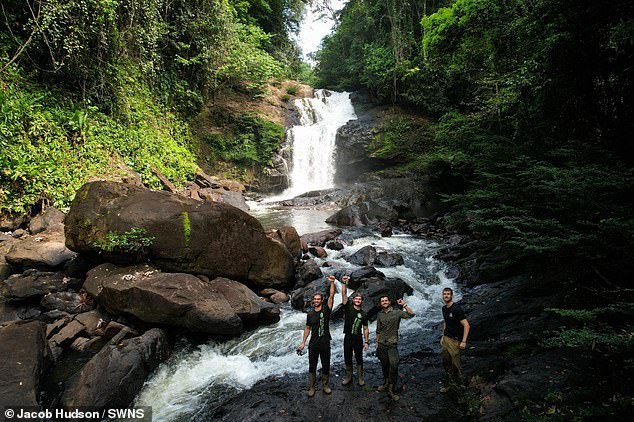
The extreme athlete and his teammates Jacob Hudson, Dick Lock and Matt Wallace kayaked continuously for the last three days and nights to complete the mission
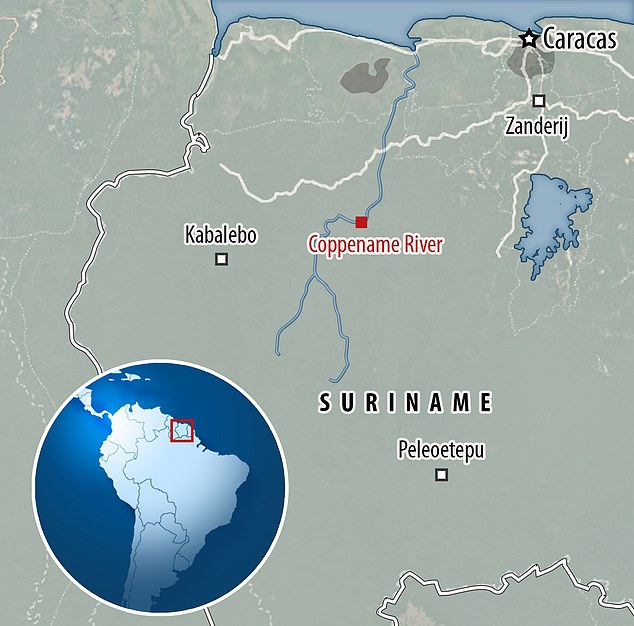
During this incredible journey, the team traveled 600 kilometers along the Coppename River in Suriname
Speaking for the first time since completing the 600 kilometer journey of discovery on Friday 4 October, Ash said: ‘Reaching the finish line was very emotional for all of us.
“Those last three days were some of the hardest.
‘We slept less than five hours in three nights. So we were extremely sleep deprived and started hallucinating.
‘It was very hard, very hard, very hot. We suffered from heat exhaustion. We were dehydrated.
‘I don’t think words will ever be able to express how hard it was.
“It was just monumental, just surreal to cross that finish line.”
Ash, 33, originally from St Asaph, Wales, but now living in London, took off in a helicopter on August 29 to the center of the former Dutch colony, which is 93 percent forested.
Then, for the next six days, he and his team fought their way upriver in kayaks carrying 100 pounds (50 kg) of supplies — while being bitten by 300 ticks and vicious army ants.
The group also encountered a terrifying goliath tarantula – the world’s largest spider – along with snakes and vicious alligators called caimans.
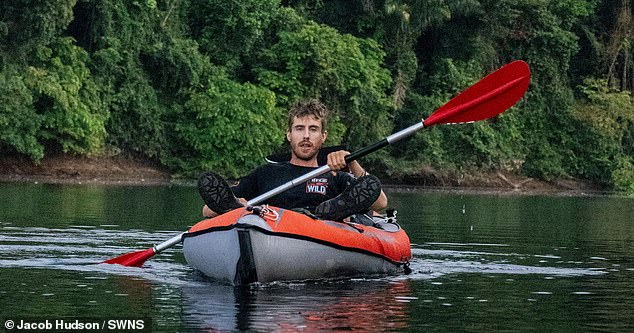
Speaking for the first time since completing the 600km journey on Friday, October 4, Ash said: “Reaching the finish line was very emotional for all of us.”
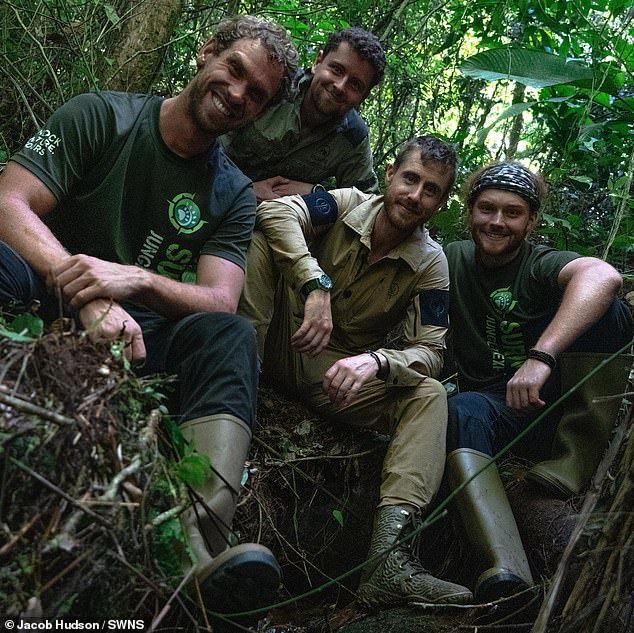
After suffering from sleep deprivation, infections and malnutrition, the team saw strange visions before finally reaching the Atlantic Ocean.
They found the source of the Coppename River on September 3, before climbing the nearby Julianatop Mountain as a team the next day in the fastest time ever.
But their biggest test came during their journey across the water from the head of the river to its mouth in their inflatable kayaks – with temperatures soaring to almost 40°C.
Ash said: ‘We haven’t seen any other people in 34 days. And we used the sun to charge everything. We were hungry, we were thirsty, we had a lot to endure.
‘One of the boats blew because it was over 37°C a few days before the finish, which is the worst nightmare.
‘That jeopardized the entire expedition and meant we had to divide all the equipment between the other three kayaks, and Jacob and Matt had to share paddling duties on one kayak.
‘Matt also blacked out because he had a really nasty infection in his arm.
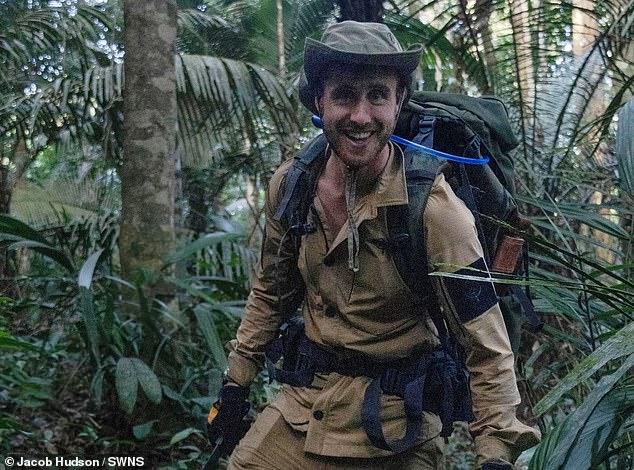
Ash said the team had to survive on about 800 to 1,000 calories a day while burning as many as 6,000, leaving them severely malnourished.
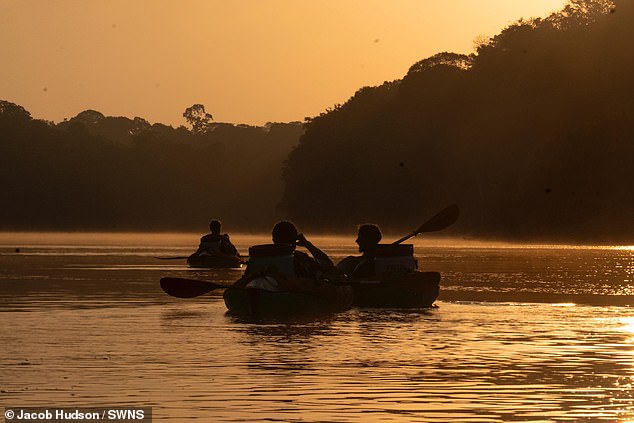
Their biggest test came as they traveled across the water from the head of the river to its mouth in their inflatable kayaks – with temperatures reaching almost 40°C
‘He blacked out for a few minutes and the whole evening was ruined because he couldn’t get his energy back.
“Matt said he could just see things in the distance that he knew weren’t there, bright lights or dark gray objects.
“Jacob passed out almost three miles before the finish, and Dick passed out a few days before that.”
Ash said the team had to survive on around 800 to 1,000 calories a day while burning as many as 6,000, leaving them severely malnourished.
Initially they lived on a limited number of ration packs before catching piranhas, stingrays and wolffish from the river, which they cooked and ate.
He and the others each lost about 20 pounds in weight and also suffered a series of nasty injuries, nearly ending their mission a few times.
Ash continued, “Matt checked his boots in the morning, but he forgot to check his gloves.
‘He received two nasty stings from the most poisonous scorpion in Suriname, enough to evacuate most people.
‘We had to take that very seriously and fortunately he started to recover, otherwise it would have been an immediate evacuation.
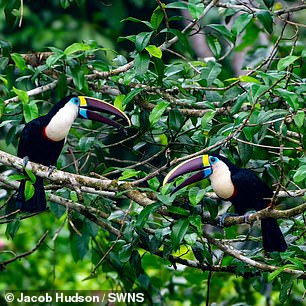
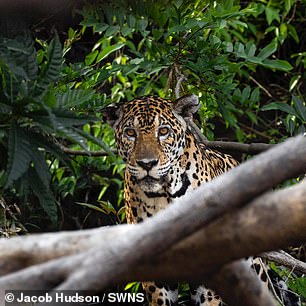
During the expedition, the group also encountered several animals, including a terrifying goliath tarantula – the largest spider in the world – along with snakes and vicious alligators called caimans.
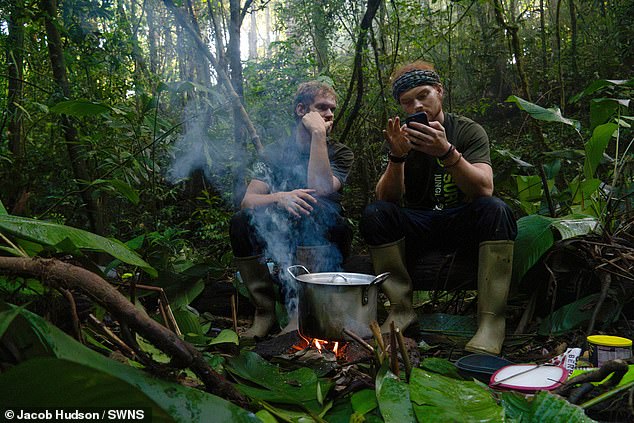
They initially lived on a limited number of ration packs before catching piranhas, stingrays and wolffish from the river, which they cooked and ate.
‘I got a very nasty infection at the bottom of my shin. Fortunately it recovered and I was given antibiotics, but I had to push out a lot of pus.’
Ash, a global ambassador for the charity Free the Wild, said the team also came face to face with a jaguar during the expedition.
And although he managed to contact loved ones and share his journey on social media through Globalsat and Viasat technology, he felt alienated from the outside world.
He said: ‘Because there is no human activity here, the wildlife is all very curious.
‘So the animals in the wild don’t necessarily have to run away or hide. They’re watching to see if you’re a threat or not – or to see if you’re prey.
‘A jaguar came to the riverbank and stood there staring for at least two minutes, which was surreal.
‘But I really hope that Suriname stays that way and ensures that the jungle remains relatively untouched and that nature is left alone.’
Ash has set three previous world records following his expeditions in Mongolia, Madagascar and China – and said he enjoyed taking part in ‘world first’ adventures.
He added: “I would like to thank Free The Wild for sponsoring the expedition to Suriname, without whom I could not have undertaken this unique mission and succeeded in our world record attempt.
“As an ambassador, I am very proud to travel the world and experience wildlife as it was meant to be experienced, rather than being afraid, isolated and neglected behind glass and steel in captivity.”
